Very rarely does one sentence have immediate impact on me.
Very rarely does one sentence change the way I interact with my family.
But this one did. It was not from Henry Thoreau or some renowned child psychologist. It was invaluable feedback from children themselves. And if I've learned anything on my Hands Free journey, it is that children are the true experts when it comes to grasping what really matters in life.
Here are the words that changed it all:
"... college athletes were asked what their parents said that made them feel great, that amplified their joy during and after a ballgame. Their overwhelming response: 'I love to watch you play.'"
The life-changing sentence came at the beginning of an article entitled, "What Makes a Nightmare Sports Parent and What Makes a Great One," which described powerful insights gathered over three decades by Bruce E. Brown and Rob Miller of Proactive Coaching LLC. Although I finished reading the entire piece, my eyes went back and searched for that one particular sentence -- the one that said, "I love to watch you play."
I read the sentence exactly five times. Then I tried to remember the past conversations I had with my kids at the conclusion of their extracurricular activities. Upon completion of a swim meet, a music recital, a school musical, or even a Sunday afternoon soccer game, had I ever said, "I love to watch you play"?
I could think of many occasions when I encouraged, guided, complimented, and provided suggestions for improvement. Did that make me a nightmare sports parent? No, but maybe sometimes I said more than was needed.
By nature, I am a wordy person -- wordy on phone messages (often getting cut off by that intrusive beep) and wordy in writing (Twitter is not my friend).
And although I have never really thought about it, I'm pretty sure I'm wordy in my praise, too. I try not to criticize, but when I go into extensive detail about my child's performance it could be misinterpreted as not being "good enough."
Could I really just say, "I love to watch you play," and leave it at that? And if I did, would my children stand there clueless at the next sporting event or musical performance because I had failed to provide all the extra details the time before?
Well, I would soon find out. As luck would have it, my then-8-year-old daughter had a swim meet the day after I read the article.
Her first event was the 25-yard freestyle. At the sound of the buzzer, my daughter exploded off the blocks and effortlessly streamlined beneath the water for an excruciating amount of time. Her sturdy arms, acting as propellers, emerged from the water driving her body forward at lightning speed. She hadn't even made it halfway down the lane when I reached up to wipe away the one small tear that formed in the corner of my eye.
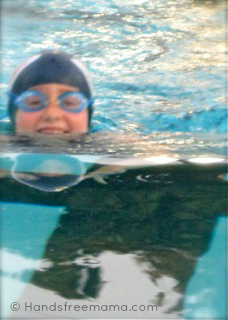
Since my older daughter began swimming competitively several years ago, I have always had this same response to her first strokes in the first heat: I cry and turn away so no one sees my blubbering reaction.
I cry not because she's going to come in first.
I cry not because she's a future Olympian or scholarship recipient.
I cry because she's healthy; she's strong; she's capable.
And I cry because I love to watch her swim.
Oh my. Those six words... I love to watch her swim.
I had always felt that way -- tearing up at every meet, but I hadn't said it in so many words... or should I say, in so few words.
After the meet, my daughter and I stood in the locker room together, just the two of us. I wrapped a warm, dry towel around her shivering shoulders. And then I looked into her eyes and said, "I love to watch you swim. You glide so gracefully; you amaze me. I just love to watch you swim."
Okay, so it wasn't quite six words, but it was a huge reduction in what I normally would have said. And there was a reaction -- a new reaction to my end of the swim meet "pep talk."
My daughter slowly leaned into me, resting her damp head against my chest for several seconds, and expelled a heavy sigh. And in doing so, I swear I could read her mind:
The pressure's off. She just loves to watch me swim; that is all.
I knew I was onto something.
Several days later, my then-5-year-old daughter had ukulele practice. It was a big day for her. The colored dots that lined the neck of her instrument since she started playing almost two years ago were going to be removed. Her instructor believed she was ready to play without the aid of the stickers.
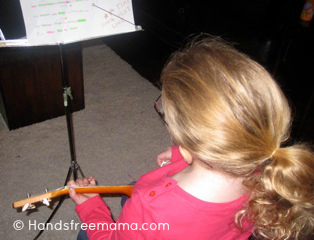
After removing the small blue, yellow, and red circles, her instructor asked her to play the song she had been working on for months -- Taylor Swift's "Ours." With no hesitation, my daughter began strumming and singing. I watched as her fingers adeptly found their homes -- no need for colorful stickers to guide them.
With a confident smile, my daughter belted out her favorite line, "Don't you worry your pretty little mind; people throw rocks at things that shine... "
As her small, agile fingers maneuvered the strings with ease, I had to look away. My vision blurred by the tears that formed. In fact, this emotional reaction happens every time she gets to that line of the song. Every. Single. Time.
I cry not because she has perfect pitch.
I cry not because she is a country music star in the making.
I cry because she is happy; she has a voice; and she is free.
And I cry because I love to watch her play.
I'll be darned if I hadn't told her this in so many words... or rather, in so few words.
My child and I exited the room upon the completion of her lesson. As we walked down the empty hallway, I knew what needed to be said.
I bent down, and looking straight into her blue eyes sheltered behind pink spectacles I said, "I love to watch you play your ukulele. I love to hear you sing."
It went against my grain to not elaborate, but I said nothing about the dots, nothing about the notes, and nothing about her pitch. This was a time to simply leave it at that.
My child's face broke into her most glorious smile -- the one that causes her eyes to scrunch up and become little slices of joy. And then she did something I didn't expect. She threw herself against me, wrapped her arms tightly around my neck, and whispered, "Thank you, Mama."
And in doing so, I swear I could read her mind:
The pressure's off. She loves to hear me play; that is all.
Given the overwhelmingly positive reactions of my daughters when presented with the short and sweet "I love to watch you play" remark, I knew I had a new mantra. Not that I would say it like a robot upon command or without reason, but I would say it when I felt it -- when tears come unexpectedly to my eyes or when suddenly I look down and see goose bumps on my arms.
Pretty soon I found myself saying things like:
"I love to hear you read."
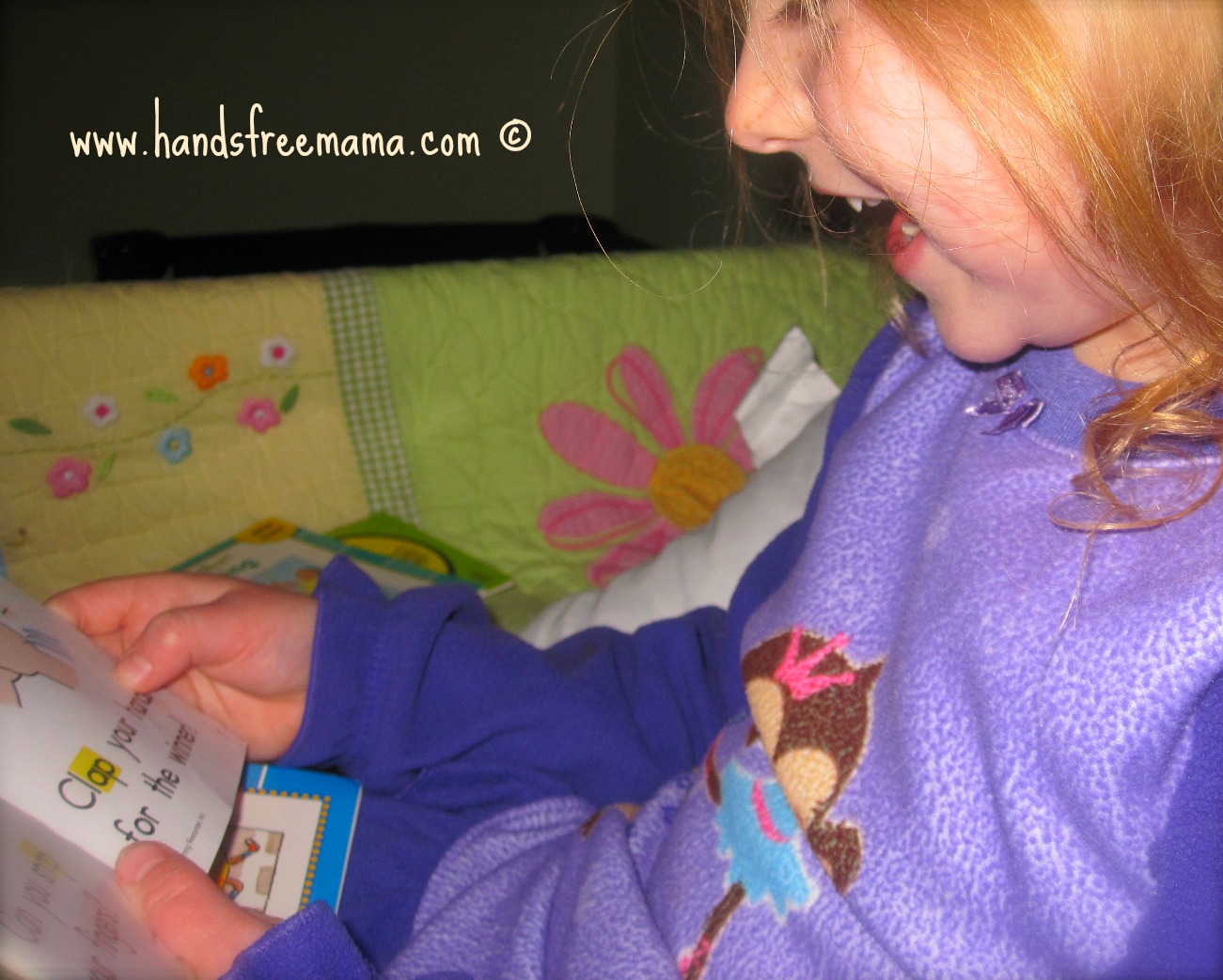
"I love to watch you swing across the monkey bars."
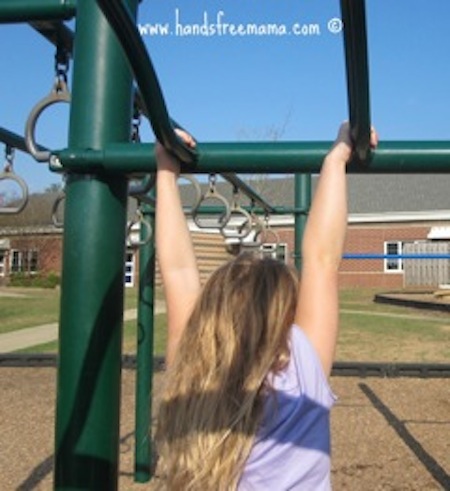
"I love to watch you hold roly poly bugs so gently in your hand."
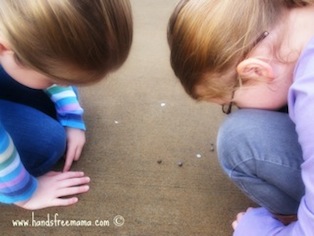
"I love to watch you help your friends in need."
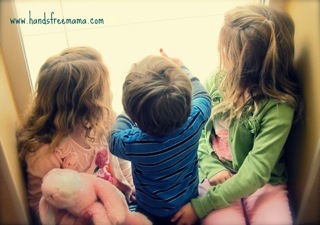
I quickly realized how important it was to express that heart-palpitating kind of love that comes solely from observing someone you adore in action.
But there was more. I learned that this powerful phrase is not exclusive to children and teens.
This revelation hit me when my husband, donned with white bandage on his arm from giving blood, was hoisting a large trash bag as we cleaned the art room at a center for residents with autism.
I watched him from the corner of the room where I was dusting shelves with my younger daughter. Embarrassingly, I had to turn away so no one saw me tear up. In that moment, I reflected on other recent events where I had been going about my business and had to stop to take pause. Moments when I stopped to watch my husband in action simply to admire the loving person, the devoted husband, and caring father he is.
But had I ever told him in so few words?
It was time.
And since writing is much easier for me than speaking, I immediately wrote my observations down. There were no long-winded paragraphs or flowery descriptions, just words of love, plain and simple:
I love watching you help our daughter learn to roller skate.
I love watching you teach her how to throw the football.
I love watching you take care of your employees in times of need or uncertainty.
I love watching you interact with your brother and sister.
I love watching you read side by side with our daughter.
I love watching you take care of our family.
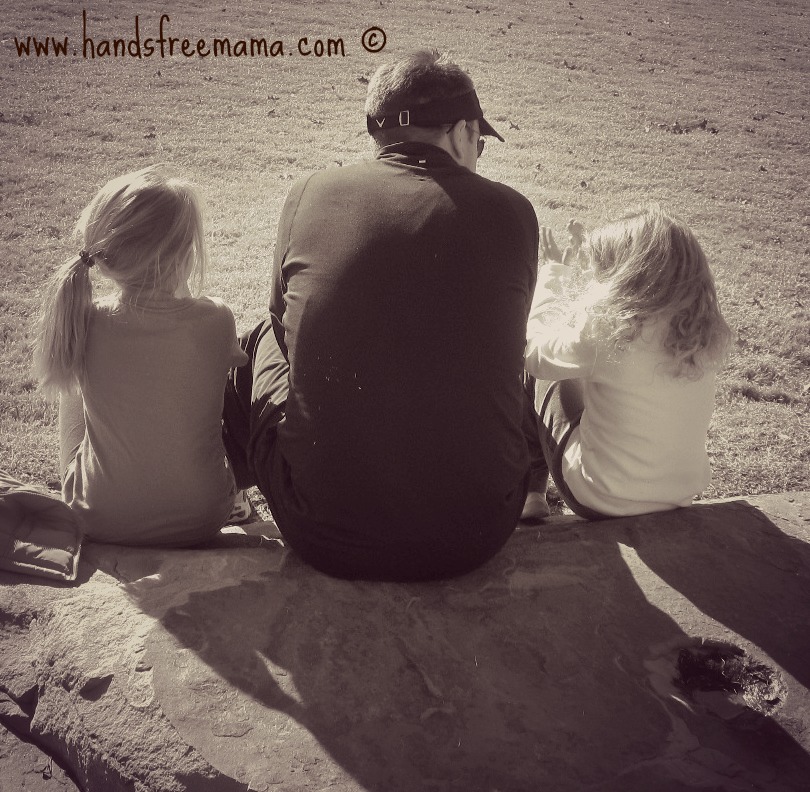
I typed up his note and left it on his dresser. I didn't stand around to see his reaction because that was not the purpose of this loving gesture. I felt those things, so I knew I should tell him those things.
When simply watching someone makes your heart feel as if it could explode right out of your chest, you really should let that person know.
It is as simple and lovely as that.
Rachel Macy Stafford's book, Hands Free Mama: A Guide to Putting Down the Phone, Burning the To-Do List, and Letting Go of Perfection to Grasp What Really Matters! is scheduled for release January 2014.
via {huffington post}

0 comments:
Post a Comment